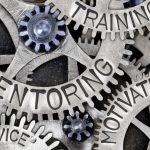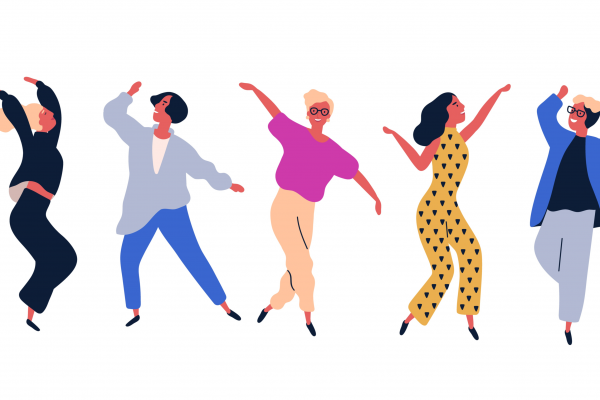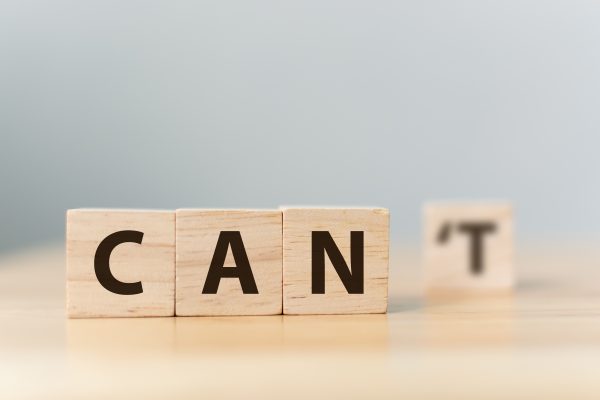7 months. 7 months we’ve been in this now. It wasn’t supposed to be this long. It wasn’t supposed to impact us like this. It wasn’t supposed to last. And yet here we are. 7 months later, and we’re crashing. Crashing hard in some cases. It was inevitable, our brains simply cannot process the level of stress they’re being subjected to. And yet, we get back up, over and over again, no matter how hard it is, we get back up.
So what’s happening to us and how can we deal with the anxiety and fear?
Psychologist Emma Kenny urges us to believe that our reactions are normal. It isn’t ‘personal’, our exhaustion, lethargy, frayed patience, isn’t us, but our internal response to external forces. The area of our brain – the prefrontal cortex – a powerful area of consciousness and higher functioning – is operating on a plane never experienced by our generation before. It is the ‘instinct’ area of our brain, heightened to deal with a threat, that propels us into fight, flight or freeze mode. This instinct should only kick in for a few seconds or minutes. And yet, here we are, 7 months later, exhausting our prefrontal cortex.
To what end? Does it bounce back? Will it bounce back? Who knows, but if we attempt to rationalise with ourselves and realise it isn’t ‘personal’ could this help us to explain our heightened emotions and anxiety? Perhaps. It’s hard not to take it personally.
The area of our brain under pressure can also be referred to as the ‘surge capacity’.
The surge capacity is a collection of adaptive systems – mental and physical – that humans draw on for short-term survival in acutely stressful situations, such as natural disasters”. (Ann Master, PhD).
There’s the key word – ‘short-term’. Pandemics however, take a whole other trajectory where the disaster becomes long-term. In any usual short-term disaster, the surge capacity replaces and renews itself. 7 months and going strong and, the ability to replace and renew simply isn’t presenting itself. Our brains are exhausted. We punish ourselves because we feel that we should have ‘adapted’ and be used to this by now. The phrase ‘new normal’ gets thrown about as easily as our Government throws about conflicting stats. It’s a phrase we’re supposed to pick up and run with. Hands up if you actually want to run away?
How do we adapt to the ‘new normal’? How do we adjust to a new daily work and home life that is constantly shifting? We cannot focus on disaster recovery yet as we are not yet in a recovery period. So instead, we have to ‘cope’ and find methods that help us to cope.
What can we do to enable us to get back up and keep going?
Understand why you’re feeling helpless. I’m a problem solver, a fixer, I like to address something, fix it and move on. Is this possible right now? No, none of this is possible. Our mindset in the UK is solution-orientated but faced with an issue with no solution, we are effectively dealing with a ‘loss’. We’ve lost the freedom of daily movement as we chose. We’ve lost trust in our Government, lost levels of expected quality in areas such as schooling, customer services. We’ve lost friendships, relationships, weddings, holidays. We’ve lost the ability to run ‘life’ as we chose to. This equates to a major loss.
Not all loss is a loss; sometimes, you need a loss to become a boss. Lose the parts of your lifestyle that no longer serve you, lose the people in your life who no longer support you, and definitely lose whatever attitude has you believing the world owes you. (The Captain)
Lower your expectations of yourself. We spend our lives striving to achieve, to prove ourselves, to break down barriers, pave a new path, pave an old path better. Stop for a bit, and give yourself permission to stop and reflect. Acknowledge where you draw your energy from and, give yourself a bit of slack. If your energy comes from that business idea that’s niggled away then divert your energy into that. Go forth and conquer that business, conquer that book you’ve wanted to read, that recipe you’ve wanted to cook, that job opportunity you’ve wanted to go for, take the wins in whatever capacity they come.
Accept life. We all have different perceptions of life at the moment. Whether we agree with masks or not, whether we acknowledge the stats or call their bluff, whether we believe a vaccine is the cure to everything or not. Don’t challenge life on a daily basis, accept it as it is. Accept what you believe in and accept that it may not be the same as what someone else believes in. Let’s accept that we cannot change the situation right now but that we’re going to attempt to enjoy life despite this. Accept the days where you want to not get out of bed and do nothing other than binge watch Netflix. Allow yourself to accept them and acknowledge the sadness. Then accept the next day, or 2 or 3 days later, is a different day. Use this next day to achieve something.
Look after yourself. Get creative, think outside of your normal, find an activity that’s meaningful and invest your energy in it. Don’t allow yourself to be at the mercy of what is happening in the world at the moment, bring your focus back to the ‘here and now’.
Build your resilience. It’s never too late to start. Start small and build the momentum. Sleep, exercise, nutrition, breathing, gratitude, plan in a little bit each day. Emma Kenny recommends techniques such as the 4-7-8 method for breathing and anxiety around sleep. Try inhaling through your nose for 4 seconds, hold in for 7 seconds, breathe out for 8 seconds. Go for a little run, buy some healthy snacks, check in with a friend, have a snooze. Do something for you.
Fear and anxiety are real and overwhelming and can be crippling. But let’s just take a moment to acknowledge that you’re not experiencing this alone, you’re not losing the plot and if you are, we’re right with you! If you’re feeling swamped, overwhelmed or just a little bit (or a whole lot) fed up just reach out to us. The road just got a little bit longer but we’ll keep getting back up and walking it together and we’ll be ok in the end.













